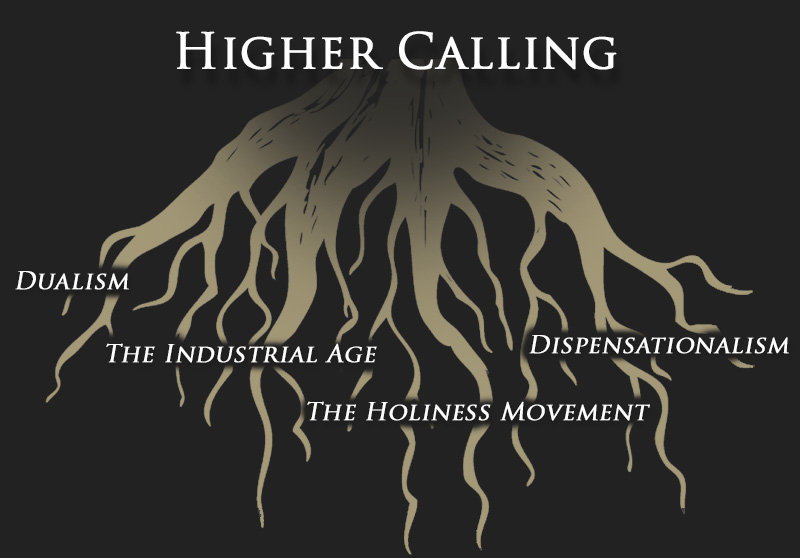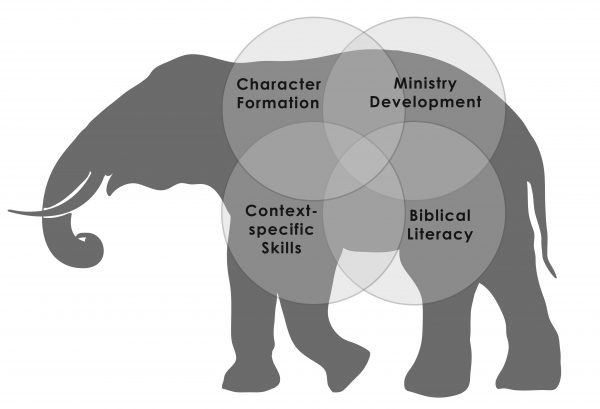Effective leaders are known for their ability to inspire in others their vision for a preferred future. These leaders imagine how the changes inherent in their vision will benefit their employees, their target population, and their bottom line. But less often do leaders think carefully about what their vision will undo.
Read moreAbout 600 million people heard these words live from Neil Armstrong when he stepped for the first time onto the surface of the moon. As the iconic news anchor Walter Cronkite narrated this historic moment over CBS News on July 20, 1969, grainy images transmitted over television screens of an other-worldly space capsule touching down made the event seem simple and serene.
Read moreI am grateful for my church heritage that prioritized disciple-making around the world. Introducing men and women to the redeeming grace of Jesus Christ and cultivating them to become mature, reproducing leaders have been the privilege of my personal and vocational life. But the church’s penchant for lionizing missionaries and pastors – like myself – because of our status as “full-time ministers” has created a collective myopia in our ranks. This poor lens hinders us from seeing the broader landscape that is richly populated by Christian believers with enormous potential to advance the Kingdom as mechanics, marketers, mothers, and medical technicians.
Read moreThe church of my childhood graced me with priceless truths. But in church I also heard a half-truth. It is the notion that people who work in vocational Christian ministry have a high calling, and those who work in secular jobs don’t. This half-truth was more implied than overt, more caught than taught. It led me to choices I didn’t know I was making. Only later did I come to know how much this half-truth shaped my life, and how for countless others it has shut off whole worlds that might have been.
Read moreI think I’ve been getting it wrong all these years. Since that time two millennia ago in Antioch when followers of the Way were first called Christians, the church has carried God’s mission to the world. Evangelism and discipleship methods have varied over the centuries and the local church’s involvement in the advancement of the kingdom of God has looked different from culture to culture and has changed with the times. During the last decade, for example, there has emerged this new term in missiological communities called “orality.” Orality methods are essentially methods of evangelism and discipleship that involve oral-based communication like story, drama, music, and the arts to portray the gospel rather than linear, abstract, literate-based communication that has been done since the invention of the printing press. Missions groups have been recently saying that they would like to begin using orality methods for peoples and cultures that cannot or do not read. The tried-and-true literate-based methods would still be used for peoples and cultures that do read. At least that’s what I thought they were saying.
Read moreLast week examined the categories for effective Christ-centered leadership development that make up its components. An organization or ministry may focus on one or more of these categories.
- character formation
- biblical literacy
- context-specific skills
- ministry development
By sizing up the task before us, knowing we are functioning in these categories, we think that all’s well that ends well, right? Yes, but here’s the caveat. Research shows that “while every emerging Christ-centered leader needs all four of these categories to be truly effective, no single school or service provider is proficient to develop leaders effectively in all four categories.
Read moreWe need a few great leaders. But we need a whole lot more good leaders. “Wait, did I read that right? you may ask. Don’t you mean from good to great?” No. We need a few great leaders, but we need a whole lot more good leaders. Here’s why.
Read moreOver the past forty years Americans have increasingly sorted themselves into communities of closely like-minded people: churches, volunteer groups, clubs, lobbies, and political parties. The result is a polarization that has transformed our historic preference for civil discourse into a vast echo chamber of hostile assault. We desperately need leaders who are persuadable, and can help challenge others in their own tribe. As far back as we know, people have belonged to tribes. This is how the human race survived; our tribes protect us, provide stability and predictability within community, and help us interpret reality. It’s why we tend to be a part of tribes today.
Read moreGod is doing a new thing. I (Michelle) live and work in the world that is global church leadership. As a woman I am limited; as an unmarried woman without children, even more so. Lately I have been challenged by how I can maximize the freedom I have in Christ, not just in terms of my salvation, but also in terms of my life and leadership. Better yet, how can I encourage other women in the same way? As we study scripture, we see how women like Esther, Deborah, and Mary influenced others, pointed them to God, and helped them walk in His purposes. These women remind me that I can’t change the world, but I can be an influencer of it.
Read morePragmatism in Practice “It doesn’t matter if it’s right; it only matters if it works.” This motto for leading change dominates 21st century corporations. It’s pragmatism in practice. Pick up any popular book on leading change. The odds are that you’ll find several underlying themes:
Read moreMovements and Institutions. It’s trendy to criticize institutions. Decaying behemoths that cater to the elites of a bygone cause are easy targets. Across the political and religious landscape, many prefer to associate with “movements” that eschew the traditional establishment in favor of an idealized future. Yet a nagging reality remains: any movement that does not institutionalize will not have lasting impact. In politics, movement is in; institution is out. New Jersey Governor Chris Christie has referred to Trump’s popularity in the current Republican race for the White House as a “movement.” Bernie Sanders’ “movement” has also resulted in his unlikely surge among disaffected voters. Institutions get backhanded in the religious world as well. For example, I just read another Christian leadership author who repeats the predictable mantra that movements are preferable over institutions. Although the vast majority of his book’s endorsements are from institutional leaders, the author pontificates that movements prioritize innovation and spontaneity while institutions focus on control that “quenches the Spirit.” We get the message: movements are good; institutions are bad.
Read moreA group of church leaders are dynamically impacting a hostile tribe of eight million people in South Asia. They are putting their lives on the line every day as they proclaim and demonstrate the Gospel. And most of them cannot read. Sound familiar?
Read moreI was teaching Emotional Intelligence (EQ) to a group of Christian executives. The attendees were gathered from various locations throughout Europe. I took my usual approach to present the topic, explaining that leaders who adjust their behavior to the needs of those they lead – self-regulation – are better at motivating others. I demonstrated through research and several true stories that this leadership behavior often generates a greater level of worker satisfaction that results in a higher level of productivity for the organization. As I labored on, Branko, who grew up under the communist regime in Serbia, became visibly agitated. He knows well the communist philosophy, tactics, and terminology of motivation. Finally, when he could no longer endure my presentation, he raised his hand and blurted out, “Your approach to Christian leadership is severely flawed. Your teaching implies that our ultimate motivation for practicing self-regulation is to get more productivity out of people so that the leaders and their organizations can be more successful.” “Yes,” I said “that’s correct.” Do you have a problem with that?” “Yes,” Branko said, “I have a big problem with that. The kind of leadership you are proposing is virtually the same as the ‘carrot and stick’ approach that our communist dictators have used for decades to oppress the masses.”
Read moreHuman conscience acts like a judge, alternately accusing and defending us. Leaders rely on it. If the lens of conscience is clear, its job is to tap us on the shoulder and point out whether our walk matches our talk. In a perfect world, conscience acts as a safeguard to let me know I’m on track or as an arbiter to tell me I’m off course. Unfortunately, in real time, leadership gets complex and messy. The leader’s lens of conscience bends with the warp and woof of life.
Read moreShark Tank is one of TV’s most watched programs The show’s popularity taps into our surging attraction for people with fresh products and plans for a morphing world. These entrepreneurs fuel the future for successful businesses, great societies, and Kingdom advancement.
Read moreSpiritual Leadership This post is part of a series on Spiritual Leadership. When FTL went into South Asia for the first time in 2010 we knew we were committing to a specific group of church and ministry leaders for the long haul. And they were committing to us. Although our initial commitment was a four-year program that would feature eight leadership development modules and one-on-one mentoring, we really didn’t know just how much God would stretch and mold and use us for His purposes. We heard the calling and had the vision. We even had what we thought was a clear strategy for Phase 1 of this ministry. We set out to make a dent on the world. But I don’t think any of us really expected the impact it would have, both on our lives personally and in the way we look at Christ-centered leadership.
Read more












